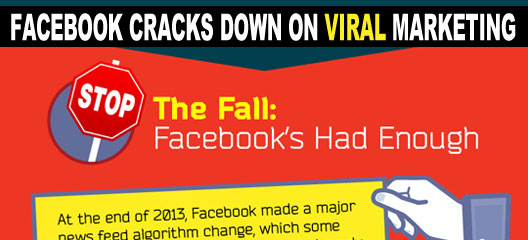The internet has managed to successfully re-define how we interact with each other and it has also managed to change our perception of virality.
In conjunction with the meteoric rise in popularity of social media sites like Facebook, we have witnessed a sort of gold rush phenomenon, with many marketers looking to climb aboard the good ship viral and get their content shared and liked in order to drive traffic ever-increasingly higher.
Beneficiaries of the rapid rise in viral content were those who managed to place themselves in a position where the huge amounts of traffic generated from the many likes and shares, allowed them to earn significant revenue from ad impressions.
Being able to hone their skills in producing headlines that appealed to our curiosity, known as click-bait headlines, enabled many viral content businesses to enjoy a healthy uplift in revenues.
This infographic charts the rise and subsequent fall of the Upworthy Viral Content Machine and highlights aspects that have had a huge impact on this strategy, such as Facebook’s recent crackdown on click-bait tactics.
Viral content aggregators are putting on a brave face and demonstrating plenty of defiance in the face of an apparent attempt by Facebook to stamp out the spammy element of this marketing tactic in particular.
Getting your content to go viral used to be considered the pathway to instant riches but not only does success elude more people than you would imagine,
[quote]Facebook’s algorithm changes have definitely impacted on the business model for viral content.[/quote]
Seemingly gone are the days where simply generating likes was enough to create more exposure for your offering. The growth of so-called click farms which are estimated to have created about $200 million worth of fake likes in order to boost visibility and income, have understandably caused social media behemoths like Facebook to make a major news feed algorithm change in response to these tactics.
The traffic numbers shown here for the likes of Upworthy compared to Viralnova, make interesting reading in light of recent changes.
[Infographic provided by Who Is Hosting This?]

